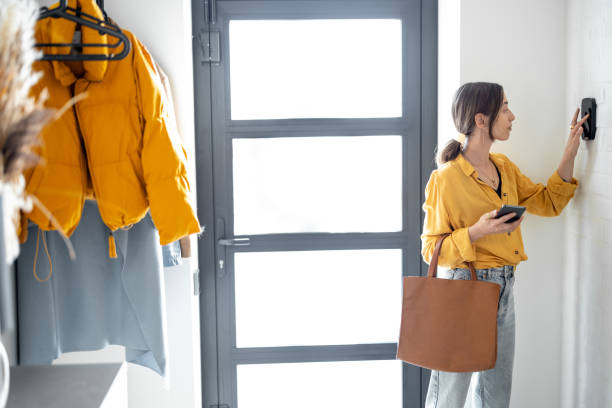
21 Aug What is the best alarm system to use?
Choosing the Best Alarm System

When safeguarding your business or home, selecting the right alarm system is critical. An alarm system is more than just a deterrent; it’s a comprehensive security measure that can prevent theft, alert authorities, and provide peace of mind. However, the needs of a business differ from those of a residential property, and the best alarm system will vary based on several factors, including the property size, the level of security required, and the specific threats faced. Let’s explore the critical considerations for choosing the best alarm system for business and residential use.
Best Alarm Systems for Business
For businesses, the best alarm system should offer robust protection, scalability, and the ability to integrate with other security measures. The following are key considerations for selecting a business alarm system:
- Comprehensive Coverage: Businesses often require extensive coverage, including protection for multiple entry points, large areas, and high-value assets. An ideal system should include a combination of motion detectors, glass break sensors, and door/window sensors. Wireless systems with a wide range of sensors can be advantageous for larger businesses as they provide installation flexibility.
- Video Surveillance: Security cameras are a critical component of business alarm systems. High-definition cameras with night vision and remote viewing capabilities allow business owners to monitor their premises 24/7. Integrating video surveillance with the alarm system ensures that any triggered alarms are recorded and can be reviewed in real time or later.
- Access Control: Many businesses require access control systems to restrict entry to certain areas. An integrated system that combines access control with alarm monitoring can provide an added layer of security. Keycards, biometric scanners, and keypad entry systems can be linked to the alarm system to trigger alerts if unauthorized access is attempted.
- Professional Monitoring: For businesses, having a professional monitoring service is essential. In a security breach, a monitoring service can immediately alert the authorities and take appropriate action. Some systems also offer enhanced monitoring, such as detecting environmental hazards like fire, carbon monoxide, or flooding.
- Scalability and Integration: It is crucial that the system can be scaled as the business grows. Whether adding new cameras or sensors or integrating with other security systems like fire alarms, the chosen system should be adaptable. Cloud-based management systems can be advantageous, allowing business owners to monitor multiple locations from a single platform.
Best Alarm Systems for Residential Use

Residential alarm systems should be user-friendly, reliable, and tailored to the household’s specific needs. Key factors to consider when selecting a home alarm system include:
- Ease of Use: Homeowners typically prefer easily installed and operated alarm systems. Many modern systems offer DIY installation options with wireless sensors and smart home integration. User-friendly mobile apps allow homeowners to control their system remotely, receive alerts, and view live video feeds.
- Smart Home Integration: The rise of smart home technology has led to alarm systems that can be integrated with other smart devices. Homeowners can connect their alarm systems to smart locks, lights, thermostats, and voice assistants like Amazon Alexa or Google Assistant. This integration allows for automation, such as automatically locking doors and arming the alarm when the homeowner leaves the house.
- Customization: Residential alarm systems should be customizable to meet the household’s specific needs. For example, a family with children might prioritize features like door/window sensors and cameras that provide notifications when specific doors are opened. Pets in the home might necessitate pet-friendly motion detectors to avoid false alarms.
- Professional vs. DIY Monitoring: Homeowners can choose between professional monitoring and self-monitoring. Professional tracking provides peace of mind, as the service will notify the authorities in case of an alarm. However, some homeowners prefer the flexibility and cost savings of self-monitoring, where they receive alerts directly to their smartphone.
- Budget Considerations: While security is a top priority, budget constraints are often a concern for homeowners. Fortunately, alarm systems are available at various price points. Some offer basic protection at a lower cost, while more advanced systems with features like video surveillance and smart home integration come at a higher price.
Check The Key Factors Are Present
The best alarm system for a business or home depends on several factors, including the size and layout of the property, the specific security needs, and the desired level of monitoring and integration. A robust, scalable system with professional monitoring, video surveillance, and access control is often the best choice for businesses. For residential use, ease of use, smart home integration, and customization are vital considerations, with professional and DIY monitoring options. By carefully evaluating these factors, you can select an alarm system that provides the best protection for your business or home, ensuring peace of mind and security.


Sorry, the comment form is closed at this time.